
Q1. Average BPL population in city X and Y is how much more/less than average BPL population in city K and L ?
(a) 794
(b) 824
(c) 848
(d) 764
(e) None of these
Q2. Average population in city K and L is what percent of total population in city Z ?
(a) 93%
(b) 73%
(c) 83.125%
(d) 87.50%
(e) 78.625%
Q3. In another city ‘A’, BPL population is half of the population other than BPL in city K which is 25% of total population. Then find total population in city A ?
(a) 6820
(b) 6080
(c) 6240
(d) None of these
(e) 6040
Q4. What is the average BPL population in all the cities ?
(a) 1924
(b) None of these
(c) 1884
(d) 1724
(e) 1964
Q5. What is the ratio of BPL population in city Y to city L ?
(a) 426 : 353
(b) 353 : 426
(c) 351 : 425
(d) None of these
(e) 353 : 428
Directions (6-10): A company have five branch office (P, Q, R, S & T) and each office have six different departments (A, B, C, D, E & F). Table shows total employees in each five branch and pie chart shows distribution of employees in each department.
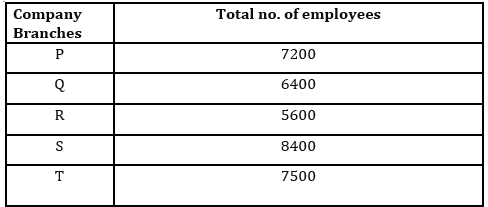
(Note: company has decided to keep same % of employees in each six department in each five branches)
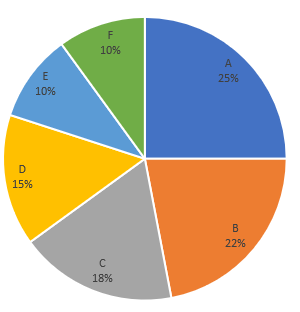
Q6. What is ratio between total employees in A and D department from branch P to total employees in B & C department from branch S ?
(a) 7 : 6
(b) 6 : 5
(c) 6 : 11
(d) 6 : 7
(e) None of these
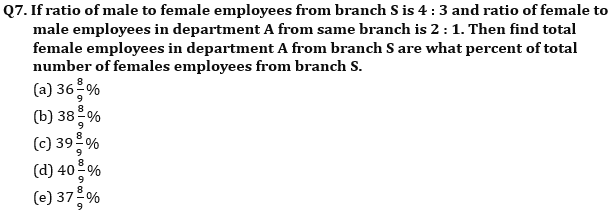
Q8. Find the average of total employees in department A from the all five branches of the company?
(a) 1725
(b) 1735
(c) 1745
(d) 1755
(e) 1765
Q9. Employees in department D, E and F from branch Q together are what percent less than total employees from branch R ?
(a) 60%
(b) 55%
(c) 65%
(d) 58%
(e) 50%
Q10. What is difference between average of employees in all departments except A from branch T and total employees in branch Q ?
(a) 5435
(b) 5245
(c) 5265
(d) 5215
(e) 5275
Directions (11-15): Read the information carefully and answer the following questions.
Persons X, Y and Z wish to go from place A to place B, which are separated by a distance of 70 km. All the three persons start off together from A, with X and Y going by bike at a speed of 20 kmph. X drops Y somewhere along the way and return to pick up Z, who has already started walking towards B at a speed of 5 kmph. Y, after being dropped by X starts walking towards B at a speed of 5 kmph. In this manner, all three of them reach B at the same time.
Q11.How much distance is covered by Z on foot?
(a) 15 km
(b) 10 km
(c) 12.5 km
(d) 17.5 km
(e) None of these
Q12. After how much time is Y dropped on the way by X?
(a) 2 hr
(b) 2.5 hr
(c) 3 hr
(d) 3.5 hr
(e) 3(1/3)hr
Q13. Find the distance from B where X meets Z while X was going to pick Z?
(a) 36 km
(b) 40 km
(c) 45 km
(d) 30 km
(e) None of these
Q14. Find the distance covered by Y in the time when X meets Z in order to pick him?
(a) 7.2 km
(b) 6 km
(c) 8 km
(d) 7.5 km
(e) 9 km
Q15. Find the total time taken by Z to reach point B?
(a) 6 hr
(b) 7.5 hr
(c) 6.5 hr
(d) 8 hr
(e) 5.5 hr
Solutions
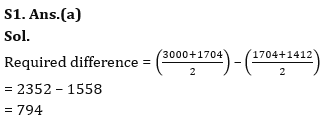
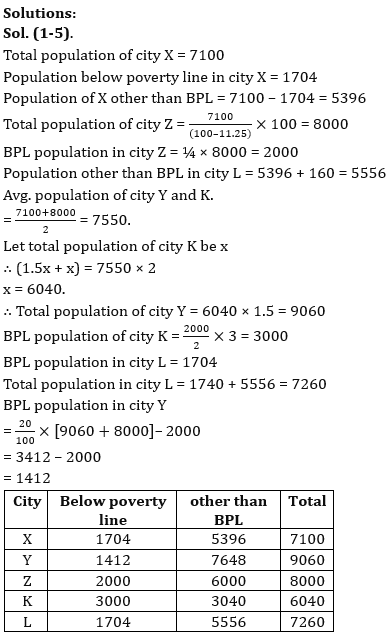
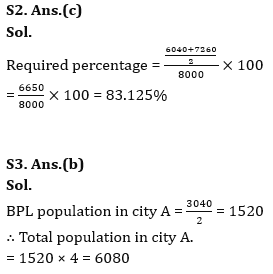
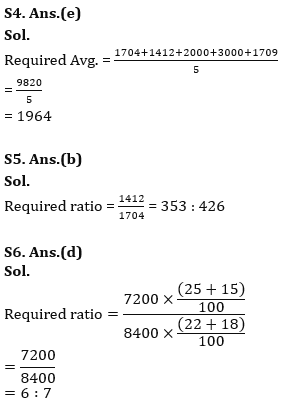
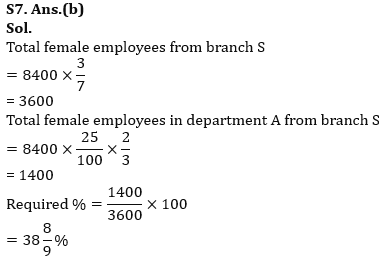
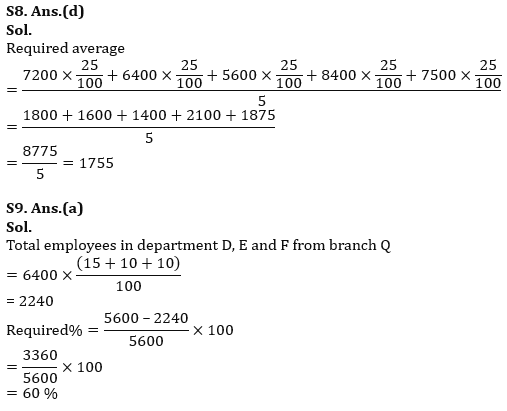
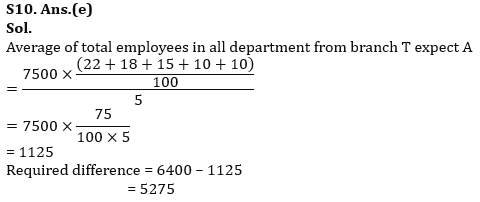
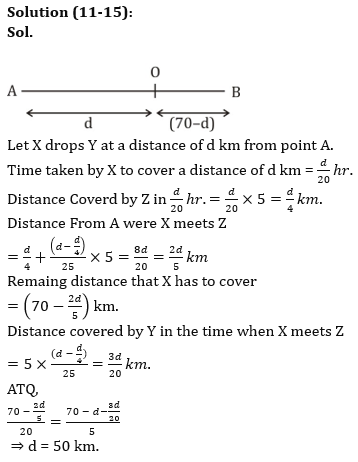

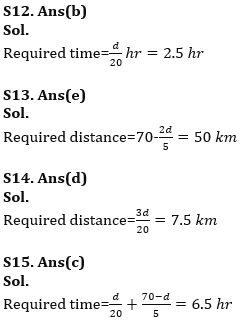



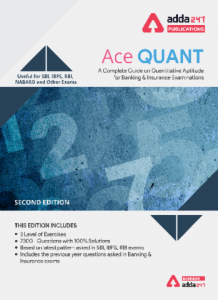

 Quantitative Aptitude Quiz For Bank Main...
Quantitative Aptitude Quiz For Bank Main...
 Quantitative Aptitude Quiz For Bank Foun...
Quantitative Aptitude Quiz For Bank Foun...







